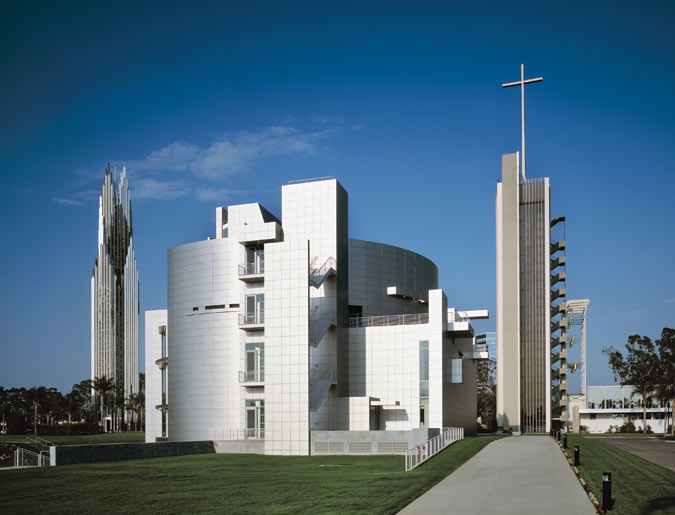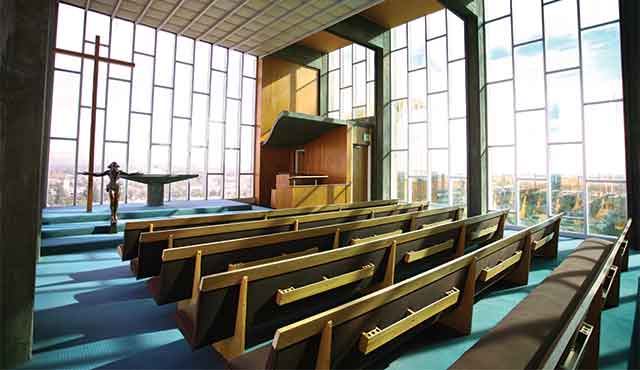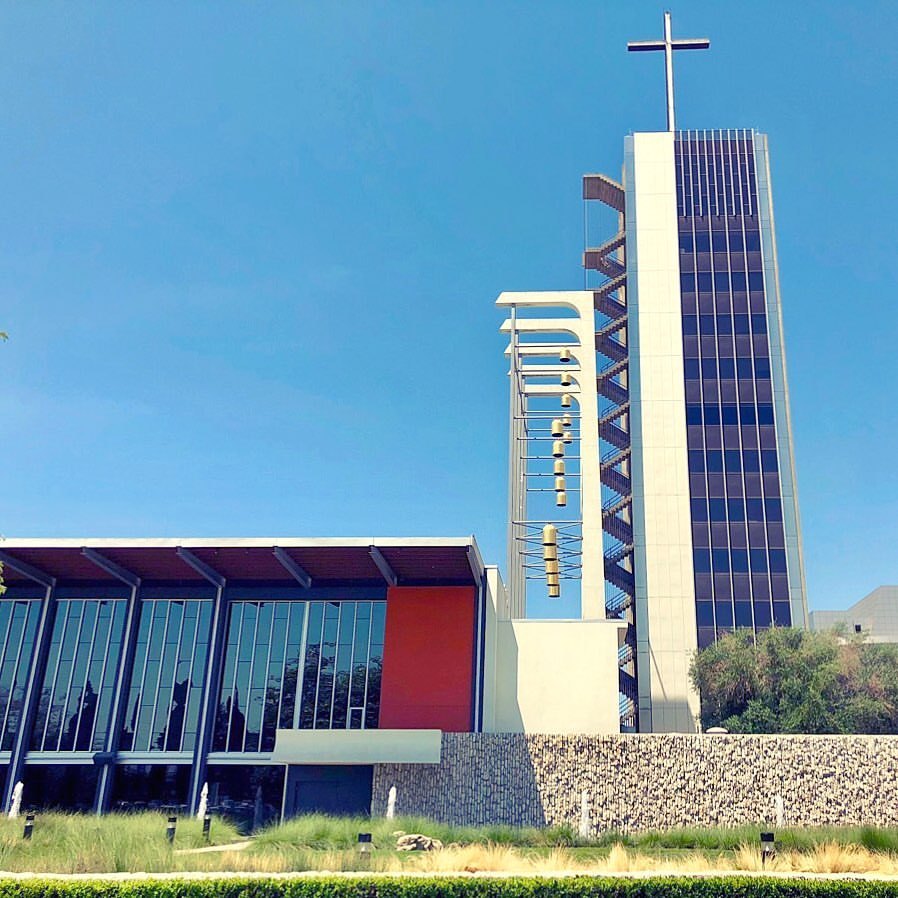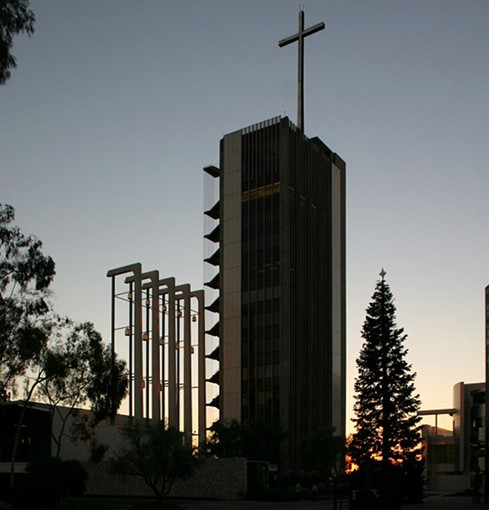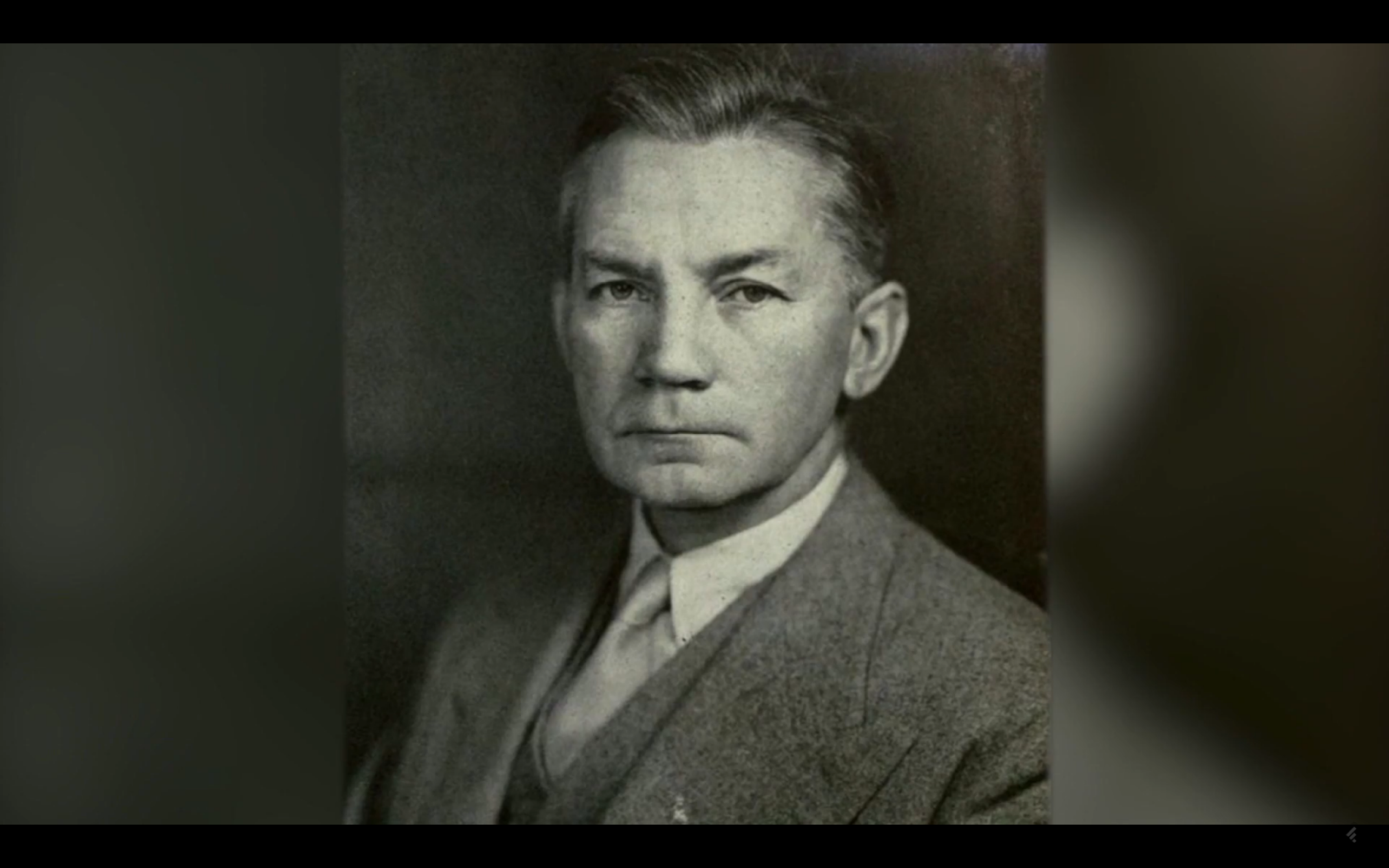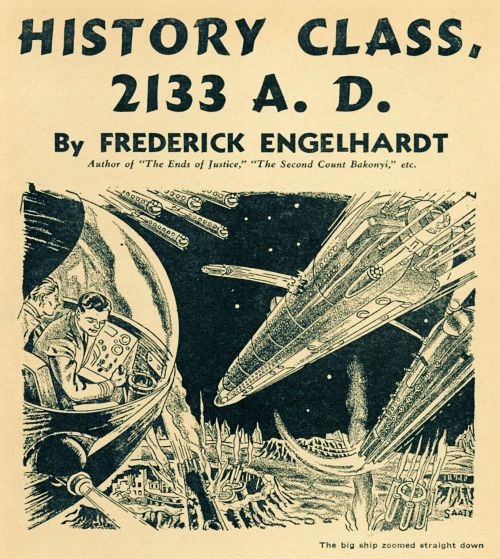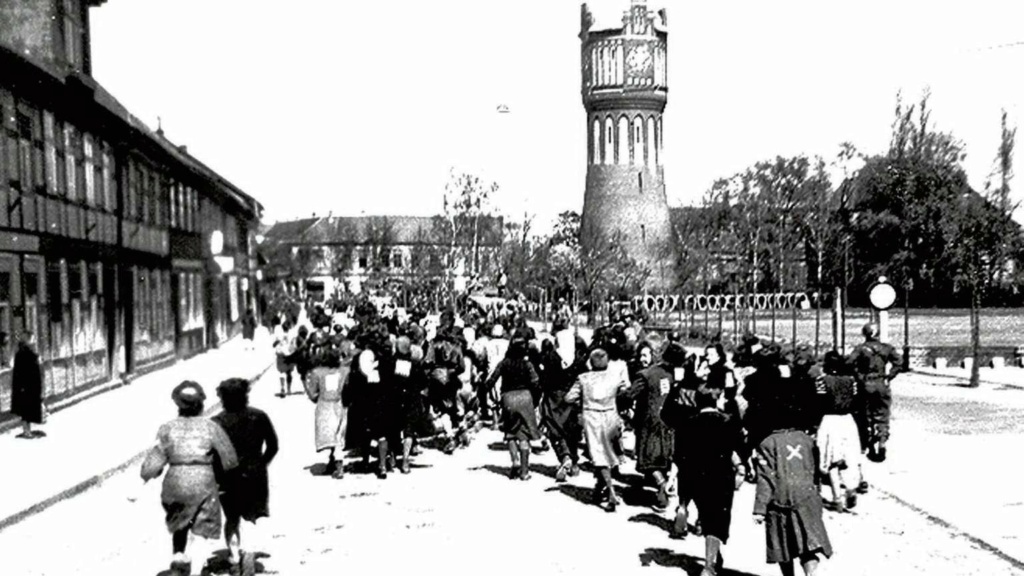http://www.whiteestate.org/books/aa/aa15.html "Now about that time Herod the king stretched forth his hands to vex certain of the church." The government of Judea was then in the hands of Herod Agrippa, subject to Claudius, the Roman emperor. Herod also held the position of tetrarch of Galilee. He was professedly a proselyte to the Jewish faith, and apparently very zealous in carrying out the ceremonies of the Jewish law. Desirous of obtaining the favor of the Jews, hoping thus to make secure his offices and honors, he proceeded to carry out their desires by persecuting the church of Christ, spoiling the houses and goods of the believers, and imprisoning the leading members of the church. He cast James, the brother of John, into prison, and sent an executioner to kill him with the sword, as another Herod had caused the prophet John to be beheaded. Seeing that the Jews were well pleased with these efforts, he imprisoned Peter also.
It was during the Passover that these cruelties were practiced. While the Jews were celebrating their deliverance from Egypt and pretending great zeal for the law of God, they were at the same time transgressing every principle of that law by persecuting and murdering the believers in Christ. The death of James caused great grief and consternation among the believers. When Peter also was imprisoned, the entire church engaged in fasting and prayer.
Herod's act in putting James to death was applauded by the Jews, though some complained of the private manner in which it was accomplished, maintaining that a public execution would have more thoroughly intimidated the believers and those sympathizing with them. Herod therefore held Peter in custody, meaning still further to gratify the Jews by the public spectacle of his death. But it was suggested that it would not be safe to bring the veteran apostle out for execution before all the people then assembled in Jerusalem. It was feared that the sight of him being led out to die might excite the pity of the multitude.
The priests and elders also feared lest Peter might make one of those powerful appeals which had frequently aroused the people to study the life and character of Jesus--appeals which they, with all their arguments, had been unable to controvert. Peter's zeal in advocating the cause of Christ had led many to take their stand for the gospel, and the rulers feared that should he be given an opportunity to defend his faith in the presence of the multitude who had come to the city to worship, his release would be demanded at the hands of the king.
While, upon various pretexts, the execution of Peter was being delayed until after the Passover, the members of the church had time for deep searching of heart and earnest prayer. They prayed without ceasing for Peter, for they felt that he could not be spared from the cause. They realized that they had reached a place where, without the special help of God, the church of Christ would be destroyed.
Meanwhile worshipers from every nation sought the temple which had been dedicated to the worship of God. Glittering with gold and precious stones, it was a vision of beauty and grandeur. But Jehovah was no longer to be found in that palace of loveliness. Israel as a nation had divorced herself from God. When Christ, near the close of His earthly ministry, looked for the last time upon the interior of the temple, He said, "Behold, your house is left unto you desolate." Matthew 23:38. Hitherto He had called the temple His Father's house; but as the Son of God passed our from those walls, God's presence was withdrawn forever from the temple built to His glory.
The day of Peter's execution was at last appointed, but still the prayers of the believers ascended to heaven; and while all their energies and sympathies were called out in fervent appeals for help, angels of God were watching over the imprisoned apostle.
Remembering the former escape of the apostles from prison, Herod on this occasion had taken double precautions. To prevent all possibility of release, Peter had been put under the charge of sixteen soldiers, who, in different watches, guarded him day and night. In his cell he was placed between two soldiers and was bound by two chains, each chain being fastened to the wrist of one of the soldiers. He was unable to move without their knowledge. With the prison doors securely fastened, and a strong guard before them, all chance of rescue or escape through human means was cut off. But man's extremity is God's opportunity.
Peter was confined in a rock-hewn cell, the doors of which were strongly bolted and barred; and the soldiers on guard were made answerable for the safekeeping of the prisoner. But the bolts and bars and the Roman guard, which effectually cut off all possibility of human aid, were but to make more complete the triumph of God in the deliverance of Peter. Herod was lifting his hand against Omnipotence, and he was to be utterly defeated. By the putting forth of His might, God was about to save the precious life that the Jews were plotting to destroy.
It is the last night before the proposed execution. A mighty angel is sent from heaven to rescue Peter. The strong gates that shut in the saint of God open without the aid of human hands. The angel of the Most High passes through, and the gates close noiselessly behind him. He enters the cell, and there lies Peter, sleeping the peaceful sleep of perfect trust.
The light that surrounds the angel fills the cell, but does not rouse the apostle. Not until he feels the touch of the angel's hand and hears a voice saying, "Arise up quickly," does he awaken sufficiently to see his cell illuminated by the light of heaven, and an angel of great glory standing before him. Mechanically he obeys the word spoken to him, and as in rising he lifts his hands he is dimly conscious that the chains have fallen from his wrists.
Again the voice of the heavenly messenger bids him, "Gird thyself, and bind on thy sandals," and again Peter mechanically obeys, keeping his wondering gaze riveted upon his visitor and believing himself to be dreaming or in a vision. Once more the angel commands, "Cast thy garment about thee, and follow me." He moves toward the door, followed by the usually talkative Peter, now dumb from amazement. They step over the guard and reach the heavily bolted door, which of its own accord swings open and closes again immediately, while the guards within and without are motionless at their post.
The second door, also guarded within and without, is reached. It opens as did the first, with no creaking of hinges or rattling of iron bolts. They pass through, and it closes again as noiselessly. In the same way they pass through the third gateway and find themselves in the open street. No word is spoken; there is no sound of footsteps. The angel glides on in front, encircled by a light of dazzling brightness, and Peter, bewildered, and still believing himself to be in a dream, follows his deliverer. Thus they pass on through one street, and then, the mission of the angel being accomplished, he suddenly disappears.
The heavenly light faded away, and Peter felt himself to be in profound darkness; but as his eyes became accustomed to the darkness, it gradually seemed to lessen, and he found himself alone in the silent street, with the cool night air blowing upon his brow. He now realized that he was free, in a familiar part of the city; he recognized the place as one that he had often frequented and had expected to pass on the morrow for the last time.
He tried to recall the events of the past few moments. He remembered falling asleep, bound between two soldiers, with his sandals and outer garments removed. He examined his person and found himself fully dressed and girded. His wrists, swollen from wearing the cruel irons, were free from the manacles. He realized that his freedom was no delusion, no dream or vision, but a blessed reality. On the morrow he was to have been led forth to die; but, lo, an angel had delivered him from prison and from death. "And when Peter was come to himself, he said, Now I know of a surety, that the Lord hath sent His angel, and hath delivered me out of the hand of Herod, and from all the expectation of the people of the Jews."
The apostle made his way at once to the house where his brethren were assembled and where they were at that moment engaged in earnest prayer for him. "As Peter knocked at the door of the gate, a damsel came to hearken, named Rhoda. And when she knew Peter's voice, she opened not the gate for gladness, but ran in, and told how Peter stood before the gate. And they said unto her, Thou art mad. But she constantly affirmed that it was even so. Then said they, It is his angel.
"But Peter continued knocking: and when they had opened the door, and saw him, they were astonished. But he, beckoning unto them with the hand to hold their peace, declared unto them how the Lord had brought him out of the prison." And Peter "departed, and went into another place." Joy and praise filled the hearts of the believers, because God had heard and answered their prayers and had delivered Peter from the hands of Herod. In the morning a large concourse of people gathered to witness the execution of the apostle. Herod sent officers to the prison for Peter, who was to be brought with a great display of arms and guards in order not only to ensure against his escape, but to intimidate all sympathizers and to show the power of the king.
When the keepers before the door found that Peter had escaped, they were seized with terror. It had been expressly stated that their lives would be required for the life of their charge, and because of this they had been especially vigilant. When the officers came for Peter, the soldiers were still at the door of the prison, the bolts and bars were still fast, the chains were still secured to the wrists of the two soldiers; but the prisoner was gone.
When the report of Peter's escape was brought to Herod, he was exasperated and enraged. Charging the prison guard with unfaithfulness, he ordered them to be put to death. Herod knew that no human power had rescued Peter, but he was determined not to acknowledge that a divine power had frustrated his design, and he set himself in bold defiance against God.
Not long after Peter's deliverance from prison, Herod went to Caesarea. While there he made a great festival designed to excite the admiration and gain the applause of the people. This festival was attended by pleasure lovers from all quarters, and there was much feasting and wine drinking. With great pomp and ceremony Herod appeared before the people and addressed them in an eloquent oration. Clad in a robe sparkling with silver and gold, which caught the rays of the sun in its glittering folds and dazzled the eyes of the beholders, he was a gorgeous figure. The majesty of his appearance and the force of his well-chosen language swayed the assembly with a mighty power. Their senses already perverted by feasting and wine drinking, they were dazzled by Herod's decorations and charmed by his deportment and oratory; and wild with enthusiasm they showered adulation upon him, declaring that no mortal could present such an appearance or command such startling eloquence. They further declared that while they had ever respected him as a ruler, henceforth they should worship him as a god.
Some of those whose voices were now heard glorifying a vile sinner had but a few years before raised the frenzied cry, Away with Jesus! Crucify Him, crucify Him! The Jews had refused to receive Christ, whose garments, coarse and often travel-stained, covered a heart of divine love. Their eyes could not discern, under the humble exterior, the Lord of life and glory, even though Christ's power was revealed before them in works that no mere man could do. But they were ready to worship as a god the haughty king whose splendid garments of silver and gold covered a corrupt, cruel heart.
Herod knew that he deserved none of the praise and homage offered him, yet he accepted the idolatry of the people as his due. His heart bounded with triumph, and a glow of gratified pride overspread his countenance as he heard the shout ascend, "It is the voice of a god, and not of a man." But suddenly a terrible change came over him. His face became pallid as death and distorted with agony. Great drops of sweat started from his pores. He stood for a moment as if transfixed with pain and terror; then turning his blanched and livid face to his horror-stricken friends, he cried in hollow, despairing tones, He whom you have exalted as a god is stricken with death.
Suffering the most excruciating anguish, he was borne from the scene of revelry and display. A moment before he had been the proud recipient of the praise and worship of that vast throng; now he realized that he was in the hands of a Ruler mightier than himself. Remorse seized him; he remembered his relentless persecution of the followers of Christ; he remembered his cruel command to slay the innocent James, and his design to put to death the apostle Peter; he remembered how in his mortification and disappointed rage he had wreaked an unreasoning vengeance upon the prison guards. He felt that God was now dealing with him, the relentless persecutor. He found no relief from pain of body or anguish of mind, and he expected none.
Herod was acquainted with the law of God, which says, "Thou shalt have no other gods before Me" (Exodus 20:3); and he knew that in accepting the worship of the people he had filled up the measure of his iniquity and brought upon himself the just wrath of Jehovah. The same angel who had come from the royal courts to rescue Peter, had been the messenger of wrath and judgment to Herod. The angel smote Peter to arouse him from slumber; it was with a different stroke that he smote the wicked king, laying low his pride and bringing upon him the punishment of the Almighty. Herod died in great agony of mind and body, under the retributive judgment of God.
This demonstration of divine justice had a powerful influence upon the people. The tidings that the apostle of Christ had been miraculously delivered from prison and death, while his persecutor had been stricken down by the curse of God, were borne to all lands and became the means of leading many to a belief in Christ. The experience of Philip, directed by an angel from heaven to go to the place where he met one seeking for truth; of Cornelius, visited by an angel with a message from God; of Peter, in prison and condemned to death, led by an angel forth to safety--all show the closeness of the connection between heaven and earth.
To the worker for God the record of these angel visits should bring strength and courage. Today, as verily as in the days of the apostles, heavenly messengers are passing through the length and breadth of the land, seeking to comfort the sorrowing, to protect the impenitent, to win the hearts of men to Christ. We cannot see them personally; nevertheless they are with us, guiding, directing, protecting.
Heaven is brought near to earth by that mystic ladder, the base of which is firmly planted on the earth, while the topmost round reaches the throne of the Infinite. Angels are constantly ascending and descending this ladder of shining brightness, bearing the prayers of the needy and distressed to the Father above, and bringing blessing and hope, courage and help, to the children of men. These angels of light create a heavenly atmosphere about the soul, lifting us toward the unseen and the eternal. We cannot behold their forms with our natural sight; only by spiritual vision can we discern heavenly things. The spiritual ear alone can hear the harmony of heavenly voices.
"The angel of the Lord encampeth round about them that fear Him, and delivereth them." Psalm 34:7. God commissions His angels to save His chosen ones from calamity, to guard them from "the pestilence that walketh in darkness" and "the destruction that wasteth at noonday." Psalm 91:6. Again and again have angels talked with men as a man speaketh with a friend, and led them to places of security. Again and again have the encouraging words of angels renewed the drooping spirits of the faithful and, carrying their minds above the things of earth, caused them to behold by faith the white robes, the crowns, the palm branches of victory, which overcomers will receive when they surround the great white throne.
It is the work of the angels to come close to the tried, the suffering, the tempted. They labor untiringly in behalf of those for whom Christ died. When sinners are led to give themselves to the Saviour, angels bear the tidings heavenward, and there is great rejoicing among the heavenly host. "Joy shall be in heaven over one sinner that repenteth, more than over ninety and nine just persons, which need no repentance." Luke 15:7. A report is borne to heaven of every successful effort on our part to dispel the darkness and to spread abroad the knowledge of Christ. As the deed is recounted before the Father, joy thrills through all the heavenly host.
The principalities and powers of heaven are watching the warfare which, under apparently discouraging circumstances, God's servants are carrying on. New conquests are being achieved, new honors won, as the Christians, rallying round the banner of their Redeemer, go forth to fight the good fight of faith. All the heavenly angels are at the service of the humble, believing people of God; and as the Lord's army of workers here below sing their songs of praise, the choir above join with them in ascribing praise to God and to His Son.
We need to understand better than we do the mission of the angels. It would be well to remember that every true child of God has the co-operation of heavenly beings. Invisible armies of light and power attend the meek and lowly ones who believe and claim the promises of God. Cherubim and seraphim, and angels that excel in strength, stand at God's right hand, "all ministering spirits, sent forth to minister for them who shall be heirs of salvation." Hebrews 1:14.
http://www.whiteestate.org/books/aa/aa16.html After the disciples had been driven from Jerusalem by persecution, the gospel message spread rapidly through the regions lying beyond the limits of Palestine; and many small companies of believers were formed in important centers. Some of the disciples "traveled as far as Phenice, and Cyprus, and Antioch, preaching the word." Their labors were usually confined to the Hebrew and Greek Jews, large colonies of whom were at this time to be found in nearly all the cities of the world.
Among the places mentioned where the gospel was gladly received is Antioch, at that time the metropolis of Syria. The extensive commerce carried on from that populous center brought to the city many people of various nationalities. Besides, Antioch was favorably known as a resort for lovers of ease and pleasure, because of its healthful situation, its beautiful surroundings, and the wealth, culture, and refinement to be found there. In the days of the apostles it had become a city of luxury and vice. The gospel was publicly taught in Antioch by certain disciples from Cyprus and Cyrene, who came "preaching the Lord Jesus." "The hand of the Lord was with them," and their earnest labors were productive of fruit. "A great number believed, and turned unto the Lord."
"Tidings of these things came unto the ears of the church which was in Jerusalem: and they sent forth Barnabas, that he should go as far as Antioch." Upon arrival in his new field of labor, Barnabas saw the work that had already been accomplished by divine grace, and he "was glad, and exhorted them all, that with purpose of heart they would cleave unto the Lord."
The labors of Barnabas in Antioch were richly blessed, and many were added to the number of believers there. As the work developed, Barnabas felt the need of suitable help in order to advance in the opening providences of God, and he went to Tarsus to seek for Paul, who, after his departure from Jerusalem some time before, had been laboring in "the regions of Syria and Cilicia," proclaiming "the faith which once he destroyed." Galatians 1:21, 23. Barnabas was successful in finding Paul and in persuading him to return with him as a companion in ministry.
In the populous city of Antioch, Paul found an excellent field of labor. His learning, wisdom, and zeal exerted a powerful influence over the inhabitants and frequenters of that city of culture; and he proved just the help that Barnabas needed. For a year the two disciples labored unitedly in faithful ministry, bringing to many a saving knowledge of Jesus of Nazareth, the world's Redeemer.
It was in Antioch that the disciples were first called Christians. The name was given them because Christ was the main theme of their preaching, their teaching, and their conversation. Continually they were recounting the incidents that had occurred during the days of His earthly ministry, when His disciples were blessed with His personal presence. Untiringly they dwelt upon His teachings and His miracles of healing. With quivering lips and tearful eyes they spoke of His agony in the garden, His betrayal, trial, and execution, the forbearance and humility with which He had endured the contumely and torture imposed upon Him by His enemies, and the Godlike pity with which He had prayed for those who persecuted Him. His resurrection and ascension, and His work in heaven as the Mediator for fallen man, were topics on which they rejoiced to dwell. Well might the heathen call them Christians, since they preached Christ and addressed their prayers to God through Him.
It was God who gave to them the name of Christian. This is a royal name, given to all who join themselves to Christ. It was of this name that James wrote later, "Do not rich men oppress you, and draw you before the judgment seats? Do not they blaspheme that worthy name by the which ye are called?" James 2:6, 7. And Peter declared, "If any man suffer as a Christian, let him not be ashamed; but let him glorify God on this behalf." "If ye be reproached for the name of Christ, happy are ye; for the spirit of glory and of God resteth upon you." 1 Peter 4:16, 14.
The believers at Antioch realized that God was willing to work in their lives "both to will and to do of His good pleasure." Philippians 2:13. Living, as they were, in the midst of a people who seemed to care but little for the things of eternal value, they sought to arrest the attention of the honest in heart, and to bear positive testimony concerning Him whom they loved and served. In their humble ministry they learned to depend upon the power of the Holy Spirit to make effective the word of life. And so, in the various walks of life, they daily bore testimony of their faith in Christ.
The example of the followers of Christ at Antioch should be an inspiration to every believer living in the great cities of the world today. While it is in the order of God that chosen workers of consecration and talent should be stationed in important centers of population to lead out in public efforts, it is also His purpose that the church members living in these cities shall use their God-given talents in working for souls. There are rich blessings in store for those who surrender fully to the call of God. As such workers endeavor to win souls to Jesus, they will find that many who never could have been reached in any other way are ready to respond to intelligent personal effort.
The cause of God in the earth today is in need of living representatives of Bible truth. The ordained ministers alone are not equal to the task of warning the great cities. God is calling not only upon ministers, but also upon physicians, nurses, colporteurs, Bible workers, and other consecrated laymen of varied talent who have a knowledge of the word of God and who know the power of His grace, to consider the needs of the unwarned cities. Time is rapidly passing, and there is much to be done. Every agency must be set in operation, that present opportunities may be wisely improved.
Paul's labors at Antioch, in association with Barnabas, strengthened him in his conviction that the Lord had called him to do a special work for the Gentile world. At the time of Paul's conversion, the Lord had declared that he was to be made a minister to the Gentiles, "to open their eyes, and to turn them from darkness to light, and from the power of Satan unto God, that they may receive forgiveness of sins, and inheritance among them which are sanctified by faith that is in Me." Acts 26:18. The angel that appeared to Ananias had said of Paul, "He is a chosen vessel unto Me, to bear My name before the Gentiles, and kings, and the children of Israel." Acts 9:15. And Paul himself, later in his Christian experience, while praying in the temple at Jerusalem, had been visited by an angel from heaven, who bade him, "Depart: for I will send thee far hence unto the Gentiles." Acts 22:21.
Thus the Lord had given Paul his commission to enter the broad missionary field of the Gentile world. To prepare him for this extensive and difficult work, God had brought him into close connection with Himself and had opened before his enraptured vision views of the beauty and glory of heaven. To him had been given the ministry of making known "the mystery" which had been "kept secret since the world began" (Romans 16:25),--"the mystery of His will" (Ephesians 1:9), "which in other ages was not made known unto the sons of men, as it is now revealed unto His holy apostles and prophets by the Spirit; that the Gentiles should be fellow heirs, and of the same body, and partakers of His promise in Christ by the gospel: whereof," declares Paul, "I was made a minister. . . . Unto me, who am less than the least of all saints, is this grace given, that I should preach among the Gentiles the unsearchable riches of Christ; and to make all men see what is the fellowship of the mystery, which from the beginning of the world hath been hid in God, who created all things by Jesus Christ: to the intent that now unto the principalities and powers in heavenly places might be known by the church the manifold wisdom of God, according to the eternal purpose which He purposed in Christ Jesus our Lord." Ephesians 3:5-11.
God had abundantly blessed the labors of Paul and Barnabas during the year they remained with the believers in Antioch. But neither of them had as yet been formally ordained to the gospel ministry. They had now reached a point in their Christian experience when God was about to entrust them with the carrying forward of a difficult missionary enterprise, in the prosecution of which they would need every advantage that could be obtained through the agency of the church.
"There were in the church that was at Antioch certain prophets and teachers; as Barnabas, and Simeon that was called Niger, and Lucius of Cyrene, and Manaen, . . . and Saul. As they ministered to the Lord, and fasted, the Holy Ghost said, Separate Me Barnabas and Saul for the work whereunto I have called them." Before being sent forth as missionaries to the heathen world, these apostles were solemnly dedicated to God by fasting and prayer and the laying on of hands. Thus they were authorized by the church, not only to teach the truth, but to perform the rite of baptism and to organize churches, being invested with full ecclesiastical authority.
The Christian church was at this time entering upon an important era. The work of proclaiming the gospel message among the Gentiles was now to be prosecuted with vigor; and as a result the church was to be strengthened by a great ingathering of souls. The apostles who had been appointed to lead out in this work would be exposed to suspicion, prejudice, and jealousy. Their teachings concerning the breaking down of "the middle wall of partition" (Ephesians 2:14) that had so long separated the Jewish and the Gentile world, would naturally subject them to the charge of heresy, and their authority as ministers of the gospel would be questioned by many zealous, believing Jews. God foresaw the difficulties that His servants would be called to meet, and, in order that their work should be above challenge, He instructed the church by revelation to set them apart publicly to the work of the ministry. Their ordination was a public recognition of their divine appointment to bear to the Gentiles the glad tidings of the gospel.
Both Paul and Barnabas had already received their commission from God Himself, and the ceremony of the laying on of hands added no new grace or virtual qualification. It was an acknowledged form of designation to an appointed office and a recognition of one's authority in that office. By it the seal of the church was set upon the work of God.
To the Jew this form was a significant one. When a Jewish father blessed his children, he laid his hands reverently upon their heads. When an animal was devoted to sacrifice, the hand of the one invested with priestly authority was laid upon the head of the victim. And when the ministers of the church of believers in Antioch laid their hands upon Paul and Barnabas, they, by that action, asked God to bestow His blessing upon the chosen apostles in their devotion to the specific work to which they had been appointed.
At a later date the rite of ordination by the laying on of hands was greatly abused; unwarrantable importance was attached to the act, as if a power came at once upon those who received such ordination, which immediately qualified them for any and all ministerial work. But in the setting apart of these two apostles, there is no record indicating that any virtue was imparted by the mere act of laying on of hands. There is only the simple record of their ordination and of the bearing that it had on their future work.
The circumstances connected with the separation of Paul and Barnabas by the Holy Spirit to a definite line of service show clearly that the Lord works through appointed agencies in His organized church. Years before, when the divine purpose concerning Paul was first revealed to him by the Saviour Himself, Paul was immediately afterward brought into contact with members of the newly organized church at Damascus. Furthermore, the church at that place was not long left in darkness as to the personal experience of the converted Pharisee. And now, when the divine commission given at that time was to be more fully carried out, the Holy Spirit, again bearing witness concerning Paul as a chosen vessel to bear the gospel to the Gentiles, laid upon the church the work of ordaining him and his fellow laborer. As the leaders of the church in Antioch "ministered to the Lord, and fasted, the Holy Ghost said, Separate Me Barnabas and Saul for the work whereunto I have called them."
God has made His church on the earth a channel of light, and through it He communicates His purposes and His will. He does not give to one of His servants an experience independent of and contrary to the experience of the church itself. Neither does He give one man a knowledge of His will for the entire church while the church--Christ's body --is left in darkness. In His providence He places His servants in close connection with His church in order that they may have less confidence in themselves and greater confidence in others whom He is leading out to advance His work.
There have ever been in the church those who are constantly inclined toward individual independence. They seem unable to realize that independence of spirit is liable to lead the human agent to have too much confidence in himself and to trust in his own judgment rather than to respect the counsel and highly esteem the judgment of his brethren, especially of those in the offices that God has appointed for the leadership of His people. God has invested His church with special authority and power which no one can be justified in disregarding and despising, for he who does this despises the voice of God.
Those who are inclined to regard their individual judgment as supreme are in grave peril. It is Satan's studied effort to separate such ones from those who are channels of light, through whom God has wrought to build up and extend His work in the earth. To neglect or despise those whom God has appointed to bear the responsibilities of leadership in connection with the advancement of the truth, is to reject the means that He has ordained for the help, encouragement, and strength of His people. For any worker in the Lord's cause to pass these by, and to think that his light must come through no other channel than directly from God, is to place himself in a position where he is liable to be deceived by the enemy and overthrown. The Lord in His wisdom has arranged that by means of the close relationship that should be maintained by all believers, Christian shall be united to Christian and church to church. Thus the human instrumentality will be enabled to co-operate with the divine. Every agency will be subordinate to the Holy Spirit, and all the believers will be united in an organized and well-directed effort to give to the world the glad tidings of the grace of God.
Paul regarded the occasion of his formal ordination as marking the beginning of a new and important epoch in his lifework. It was from this time that he afterward dated the beginning of his apostleship in the Christian church. While the light of the gospel was shining brightly at Antioch, an important work was continued by the apostles who had remained in Jerusalem. Every year, at the time of the festivals, many Jews from all lands came to Jerusalem to worship at the temple. Some of these pilgrims were men of fervent piety and earnest students of the prophecies. They were looking and longing for the advent of the promised Messiah, the hope of Israel. While Jerusalem was filled with these strangers, the apostles preached Christ with unflinching courage, though they knew that in so doing they were placing their lives in constant jeopardy. The Spirit of God set its seal upon their labors; many converts to the faith were made; and these, returning to their homes in different parts of the world, scattered the seeds of truth through all nations and among all classes of society.
Prominent among the apostles who engaged in this work were Peter, James, and John, who felt confident that God had appointed them to preach Christ among their countrymen at home. Faithfully and wisely they labored, testifying of the things they had seen and heard, and appealing to "a more sure word of prophecy" (2 Peter 1:19), in an effort to persuade "the house of Israel. . . that God hath made that same Jesus, whom" the Jews "crucified, both Lord and Christ" (Acts 2:36).
http://www.whiteestate.org/books/aa/aa17.html "Sent forth by the Holy Ghost," Paul and Barnabas, after their ordination by the brethren in Antioch, "departed unto Seleucia; and from thence they sailed to Cyprus." Thus the apostles began their first missionary journey. Cyprus was one of the places to which the believers had fled from Jerusalem because of the persecution following the death of Stephen. It was from Cyprus that certain men had journeyed to Antioch, "preaching the Lord Jesus." Acts 11:20. Barnabas himself was "of the country of Cyprus" (Acts 4:36); and now he and Paul, accompanied by John Mark, a kinsman of Barnabas, visited this island field.
Mark's mother was a convert to the Christian religion, and her home at Jerusalem was an asylum for the disciples. There they were always sure of a welcome and a season of rest. It was during one of these visits of the apostles to his mother's home, that Mark proposed to Paul and Barnabas that he should accompany them on their missionary tour. He felt the favor of God in his heart and longed to devote himself entirely to the work of the gospel ministry. Arriving at Salamis, the apostles "preached the word of God in the synagogues of the Jews. . . . And when they had gone through the isle unto Paphos, they found a certain sorcerer, a false prophet, a Jew, whose name was Bar-Jesus: which was with the deputy of the country, Sergius Paulus, a prudent man; who called for Barnabas and Saul, and desired to hear the word of God. But Elymas the sorcerer (for so is his name by interpretation) withstood them, seeking to turn away the deputy from the faith."
Not without a struggle does Satan allow the kingdom of God to be built up in the earth. The forces of evil are engaged in unceasing warfare against the agencies appointed for the spread of the gospel, and these powers of darkness are especially active when the truth is proclaimed before men of repute and sterling integrity. Thus it was when Sergius Paulus, the deputy of Cyprus, was listening to the gospel message. The deputy had sent for the apostles, that he might be instructed in the message they had come to bear, and now the forces of evil, working through the sorcerer Elymas, sought with their baleful suggestions to turn him from the faith and so thwart the purpose of God.
Thus the fallen foe ever works to keep in his ranks men of influence who, if converted, might render effective service in God's cause. But the faithful gospel worker need not fear defeat at the hand of the enemy; for it is his privilege to be endued with power from above to withstand every satanic influence. Although sorely beset by Satan, Paul had the courage to rebuke the one through whom the enemy was working. "Filled with the Holy Ghost," the apostle "set his eyes on him, and said, O full of all subtlety and all mischief, thou child of the devil, thou enemy of all righteousness, wilt thou not cease to pervert the right ways of the Lord? And now, behold, the hand of the Lord is upon thee, and thou shalt be blind, not seeing the sun for a season. And immediately there fell on him a mist and a darkness; and he went about seeking some to lead him by the hand. Then the deputy, when he saw what was done, believed, being astonished at the doctrine of the Lord."
The sorcerer had closed his eyes to the evidences of gospel truth, and the Lord, in righteous anger, caused his natural eyes to be closed, shutting out from him the light of day. This blindness was not permanent, but only for a season, that he might be warned to repent and seek pardon of the God whom he had so grievously offended. The confusion into which he was thus brought made of no effect his subtle arts against the doctrine of Christ. The fact that he was obliged to grope about in blindness proved to all that the miracles which the apostles had performed, and which Elymas had denounced as sleight of hand, were wrought by the power of God. The deputy, convinced of the truth of the doctrine taught by the apostles, accepted the gospel.
Elymas was not a man of education, yet he was peculiarly fitted to do the work of Satan. Those who preach the truth of God will meet the wily foe in many different forms. Sometimes it will be in the person of learned, but more often of ignorant, men, whom Satan has trained to be successful instruments to deceive souls. It is the duty of the minister of Christ to stand faithful at his post, in the fear of God and in the power of His might. Thus he may put to confusion the hosts of Satan and may triumph in the name of the Lord.
Paul and his company continued their journey, going to Perga, in Pamphylia. Their way was toilsome; they encountered hardships and privations, and were beset with dangers on every side. In the towns and cities through which they passed, and along the lonely highways, they were surrounded by dangers seen and unseen. But Paul and Barnabas had learned to trust God's power to deliver. Their hearts were filled with fervent love for perishing souls. As faithful shepherds in search of the lost sheep, they gave no thought to their own ease and convenience. Forgetful of self, they faltered not when weary, hungry, and cold. They had in view but one object--the salvation of those who had wandered far from the fold.
It was here that Mark, overwhelmed with fear and discouragement, wavered for a time in his purpose to give himself wholeheartedly to the Lord's work. Unused to hardships, he was disheartened by the perils and privations of the way. He had labored with success under favorable circumstances; but now, amidst the opposition and perils that so often beset the pioneer worker, he failed to endure hardness as a good soldier of the cross. He had yet to learn to face danger and persecution and adversity with a brave heart. As the apostles advanced, and still greater difficulties were apprehended, Mark was intimidated and, losing all courage, refused to go farther and returned to Jerusalem.
This desertion caused Paul to judge Mark unfavorably, and even severely, for a time. Barnabas, on the other hand, was inclined to excuse him because of his inexperience. He felt anxious that Mark should not abandon the ministry, for he saw in him qualifications that would fit him to be a useful worker for Christ. In after years his solicitude in Mark's behalf was richly rewarded, for the young man gave himself unreservedly to the Lord and to the work of proclaiming the gospel message in difficult fields. Under the blessing of God, and the wise training of Barnabas, he developed into a valuable worker.
Paul was afterward reconciled to Mark and received him as a fellow laborer. He also recommended him to the Colossians as one who was a fellow worker "unto the kingdom of God," and "a comfort unto me." Colossians 4:11. Again, not long before his own death, he spoke of Mark as "profitable" to him "for the ministry." 2 Timothy 4:11.
After the departure of Mark, Paul and Barnabas visited Antioch in Pisidia and on the Sabbath day went into the Jewish synagogue and sat down. "After the reading of the law and the prophets the rulers of the synagogue sent unto them, saying, Ye men and brethren, if ye have any word of exhortation for the people, say on." Being thus invited to speak, "Paul stood up, and beckoning with his hand said, Men of Israel, and ye that fear God, give audience." Then followed a wonderful discourse. He proceeded to give a history of the manner in which the Lord had dealt with the Jews from the time of their deliverance from Egyptian bondage, and how a Saviour had been promised, of the seed of David, and he boldly declared that "of this man's seed hath God according to His promise raised unto Israel a Saviour, Jesus: when John had first preached before His coming the baptism of repentance to all the people of Israel. And as John fulfilled his course, he said, Whom think ye that I am? I am not He. But, behold, there cometh One after me, whose shoes of His feet I am not worthy to loose." Thus with power he preached Jesus as the Saviour of men, the Messiah of prophecy.
Having made this declaration, Paul said, "Men and brethren, children of the stock of Abraham, and whosoever among you feareth God, to you is the word of this salvation sent. For they that dwell at Jerusalem, and their rulers, because they knew Him not, nor yet the voices of the prophets which are read every Sabbath day, they have fulfilled them in condemning Him."
Paul did not hesitate to speak the plain truth concerning the rejection of the Saviour by the Jewish leaders. "Though they found no cause of death in Him," the apostle declared, "yet desired they Pilate that He should be slain. And when they had fulfilled all that was written of Him, they took Him down from the tree, and laid Him in a sepulcher. But God raised Him from the dead: and He was seen many days of them which came up with Him from Galilee to Jerusalem, who are His witnesses unto the people."
"We declare unto you glad tidings," the apostle continued, "how that the promise which was made unto the fathers, God hath fulfilled the same unto us their children, in that He hath raised up Jesus again; as it is also written in the second psalm, Thou art My Son, this day have I begotten Thee. And as concerning that He raised Him up from the dead, now no more to return to corruption, He said on this wise, I will give you the sure mercies of David. Wherefore He saith also in another psalm, Thou shalt not suffer Thine Holy One to see corruption. For David, after he had served his own generation by the will of God, fell on sleep, and was laid unto his fathers, and saw corruption: but He, whom God raised again, saw no corruption."
And now, having spoken plainly of the fulfillment of familiar prophecies concerning the Messiah, Paul preached unto them repentance and the remission of sin through the merits of Jesus their Saviour. "Be it known unto you," he said, "that through this Man is preached unto you the forgiveness of sins: and by Him all that believe are justified from all things, from which ye could not be justified by the law of Moses."
The Spirit of God accompanied the words that were spoken, and hearts were touched. The apostle's appeal to Old Testament prophecies, and his declaration that these had been fulfilled in the ministry of Jesus of Nazareth, carried conviction to many a soul longing for the advent of the promised Messiah. And the speaker's words of assurance that the "glad tidings" of salvation were for Jew and Gentile alike, brought hope and joy to those who had not been numbered among the children of Abraham according to the flesh. "When the Jews were gone out of the synagogue, the Gentiles besought that these words might be preached to them the next Sabbath." The congregation having finally broken up, "many of the Jews and religious proselytes," who had accepted the glad tidings borne to them that day, "followed Paul and Barnabas: who, speaking to them, persuaded them to continue in the grace of God."
The interest aroused in Antioch of Pisidia by Paul's discourse brought together on the next Sabbath day, "almost the whole city . . . to hear the word of God. But when the Jews saw the multitudes, they were filled with envy, and spake against those things which were spoken by Paul, contradicting and blaspheming.
"Then Paul and Barnabas waxed bold, and said, It was necessary that the word of God should first have been spoken to you: but seeing ye put it from you, and judge yourselves unworthy of everlasting life, lo, we turn to the Gentiles. For so hath the Lord commanded us, saying, I have set thee to be a light of the Gentiles, that thou shouldest be for salvation unto the ends of the earth."
"When the Gentiles heard this, they were glad, and glorified the word of the Lord: and as many as were ordained to eternal life believed." They rejoiced exceedingly that Christ recognized them as the children of God, and with grateful hearts they listened to the word preached. Those who believed were zealous in communicating the gospel message to others, and thus "the word of the Lord was published throughout all the region."
Centuries before, the pen of inspiration had traced this ingathering of the Gentiles; but those prophetic utterances had been but dimly understood. Hosea had said: "Yet the number of the children of Israel shall be as the sand of the sea, which cannot be measured nor numbered; and it shall come to pass, that in the place where it was said unto them, Ye are not My people, there it shall be said unto them, Ye are the sons of the living God." And again: I will sow her unto Me in the earth; and I will have mercy upon her that had not obtained mercy; and I will say to them which were not My people, Thou art My people; and they shall say, Thou art my God." Hosea 1:10; 2:23.
The Saviour Himself, during His earthly ministry, foretold the spread of the gospel among the Gentiles. In the parable of the vineyard He declared to the impenitent Jews, "The kingdom of God shall be taken from you, and given to a nation bringing forth the fruits thereof." Matthew 21:43. And after His resurrection He commissioned His disciples to go "into all the world" and "teach all nations." They were to leave none unwarned, but were to "preach the gospel to every creature." Matthew 28:19; Mark 16:15.
In turning to the Gentiles in Antioch of Pisidia, Paul and Barnabas did not cease laboring for the Jews elsewhere, wherever there was a favorable opportunity to gain a hearing. Later, in Thessalonica, in Corinth, in Ephesus, and in other important centers, Paul and his companions in labor preached the gospel to both Jews and Gentiles. But their chief energies were henceforth directed toward the building up of the kingdom of God in heathen territory, among peoples who had but little or no knowledge of the true God and of His Son.
The hearts of Paul and his associate workers were drawn out in behalf of those who were "without Christ, being aliens from the commonwealth of Israel, and strangers from the covenants of promise, having no hope, and without God in the world." Through the untiring ministrations of the apostles to the Gentiles, the "strangers and foreigners," who "sometimes were far off," learned that they had been "made nigh by the blood of Christ," and that through faith in His atoning sacrifice they might become "fellow citizens with the saints, and of the household of God." Ephesians 2:12, 13, 19.
Advancing in faith, Paul labored unceasingly for the upbuilding of God's kingdom among those who had been neglected by the teachers in Israel. Constantly he exalted Christ Jesus as "the King of kings, and Lord of lords" (1 Timothy 6:15), and exhorted the believers to be "rooted and built up in Him, and stablished in the faith." Colossians 2:7.
To those who believe, Christ is a sure foundation. Upon this living stone, Jews and Gentiles alike may build. It is broad enough for all and strong enough to sustain the weight and burden of the whole world. This is a fact plainly recognized by Paul himself. In the closing days of his ministry, when addressing a group of Gentile believers who had remained steadfast in their love of the gospel truth, the apostle wrote, "Ye . . .are built upon the foundation of the apostles and prophets, Jesus Christ Himself being the chief cornerstone." Ephesians 2:19, 20.
As the gospel message spread in Pisidia, the unbelieving Jews of Antioch in their blind prejudice "stirred up the devout and honorable women, and the chief men of the city, and raised persecution against Paul and Barnabas, and expelled them" from that district. The apostles were not discouraged by this treatment; they remembered the words of their Master: "Blessed are ye, when men shall revile you, and persecute you, and shall say all manner of evil against you falsely, for My sake. Rejoice, and be exceeding glad: for great is your reward in heaven: for so persecuted they the prophets which were before you." Matthew 5:11, 12.
The gospel message was advancing, and the apostles had every reason for feeling encouraged. Their labors had been richly blessed among the Pisidians at Antioch, and the believers whom they left to carry forward the work alone for a time, "were filled with joy, and with the Holy Ghost."
Last edited by orthodoxymoron on Tue Feb 02, 2021 11:54 am; edited 4 times in total












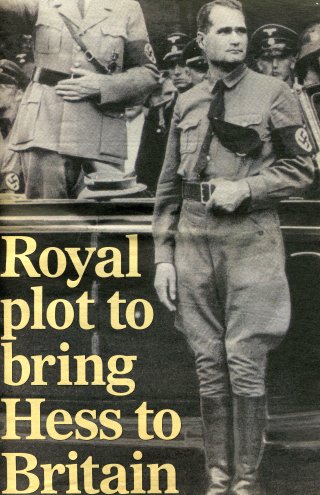





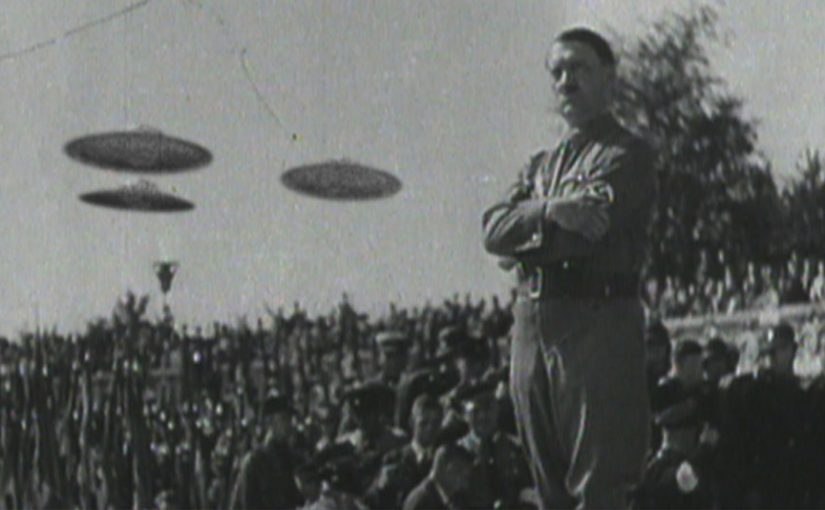
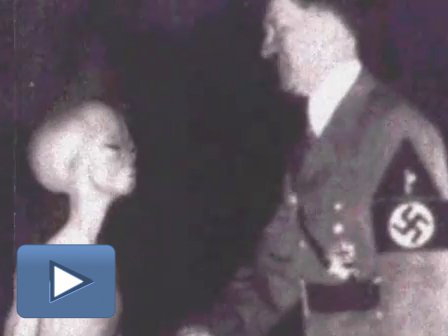
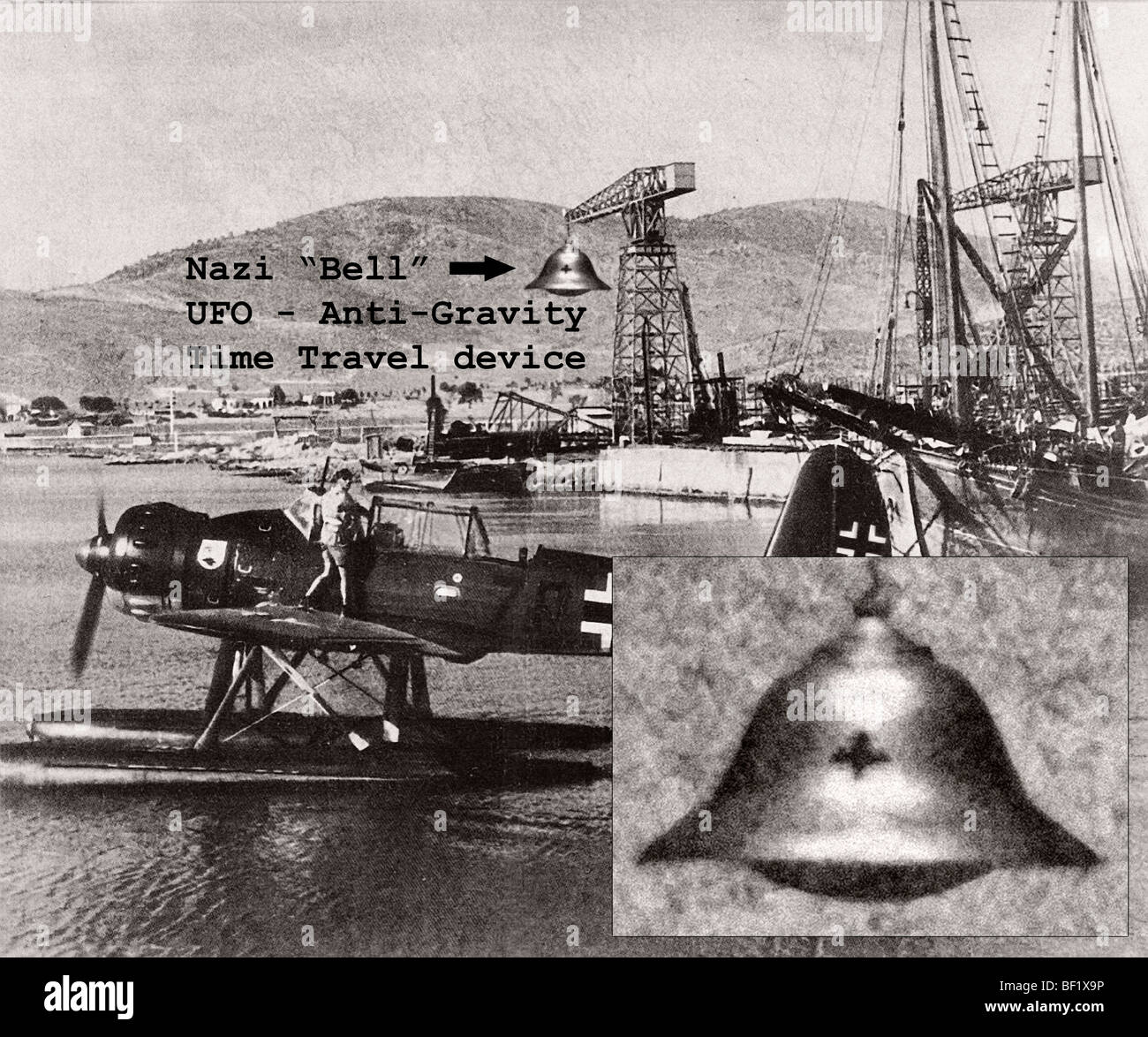


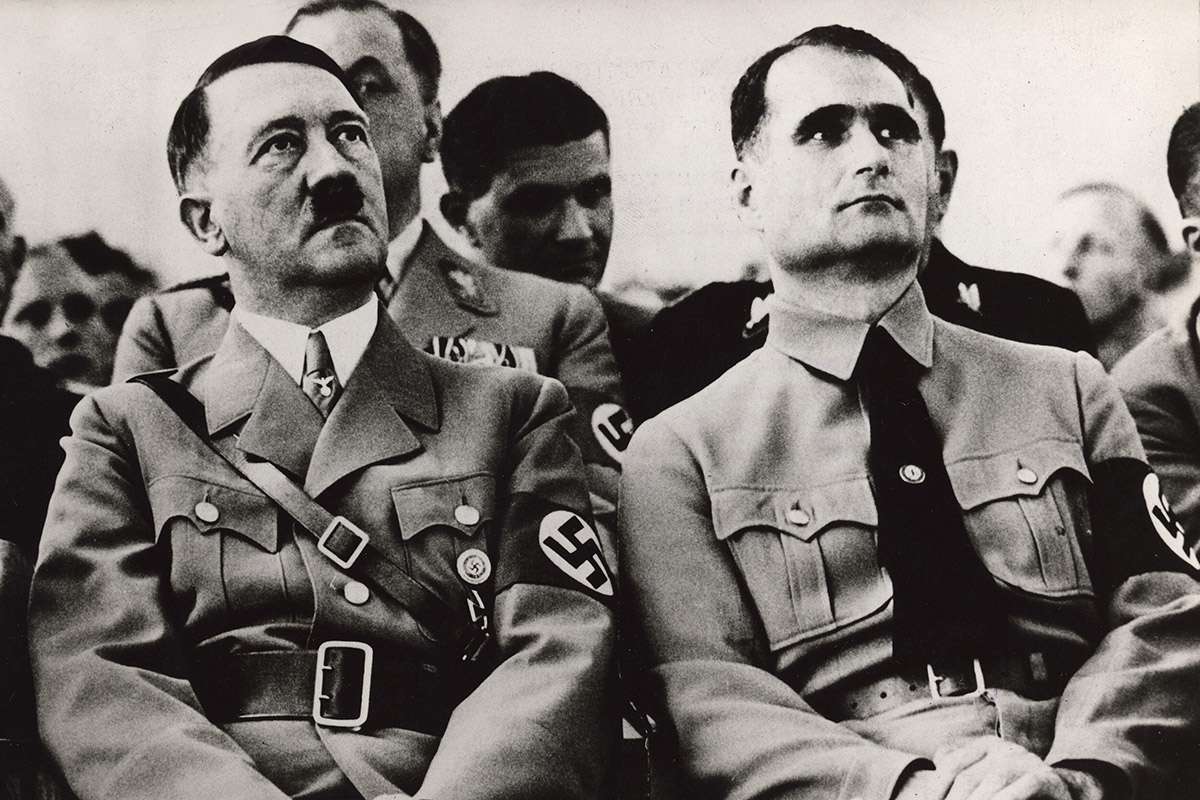



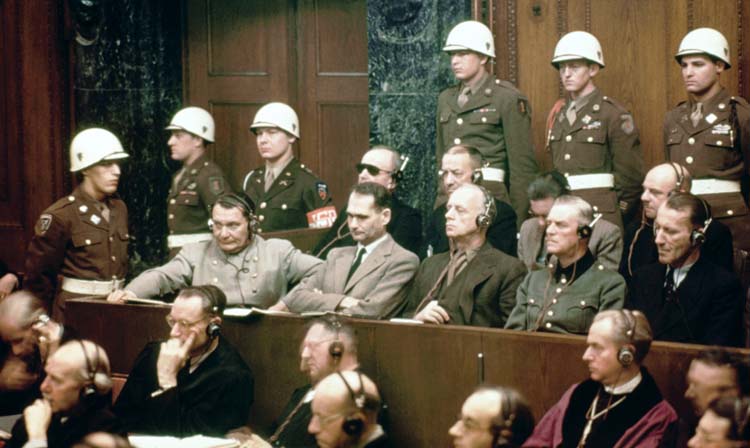




























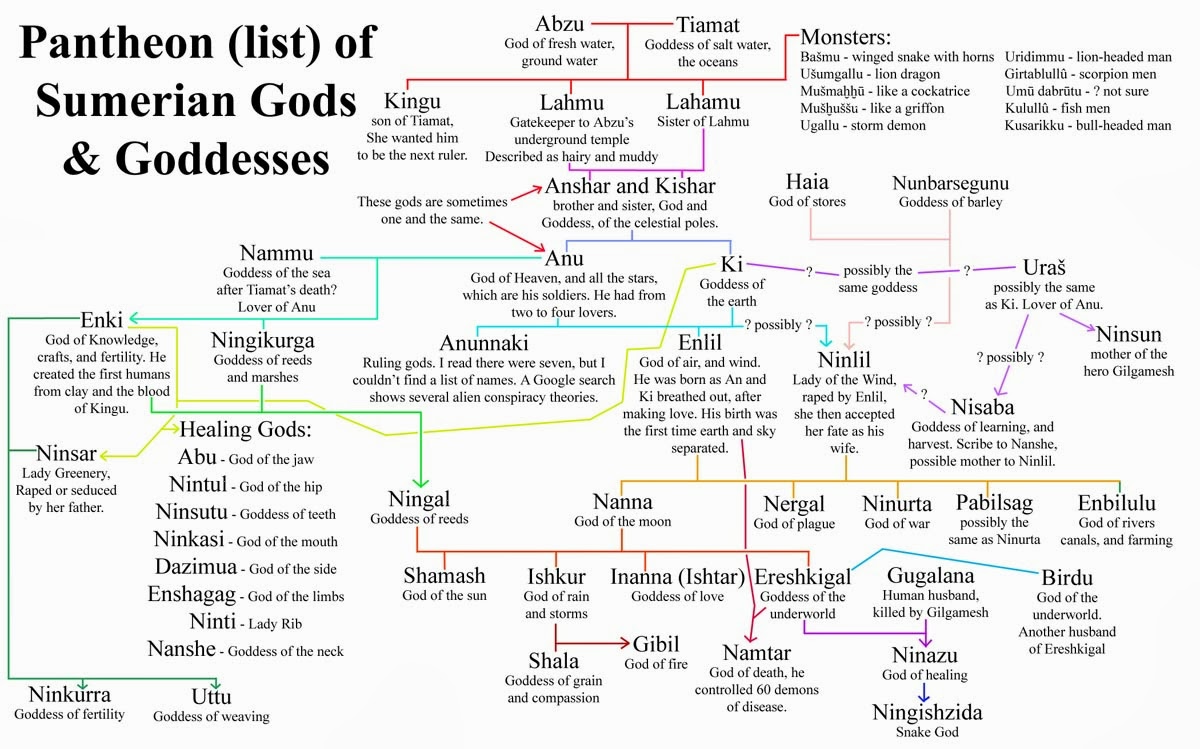























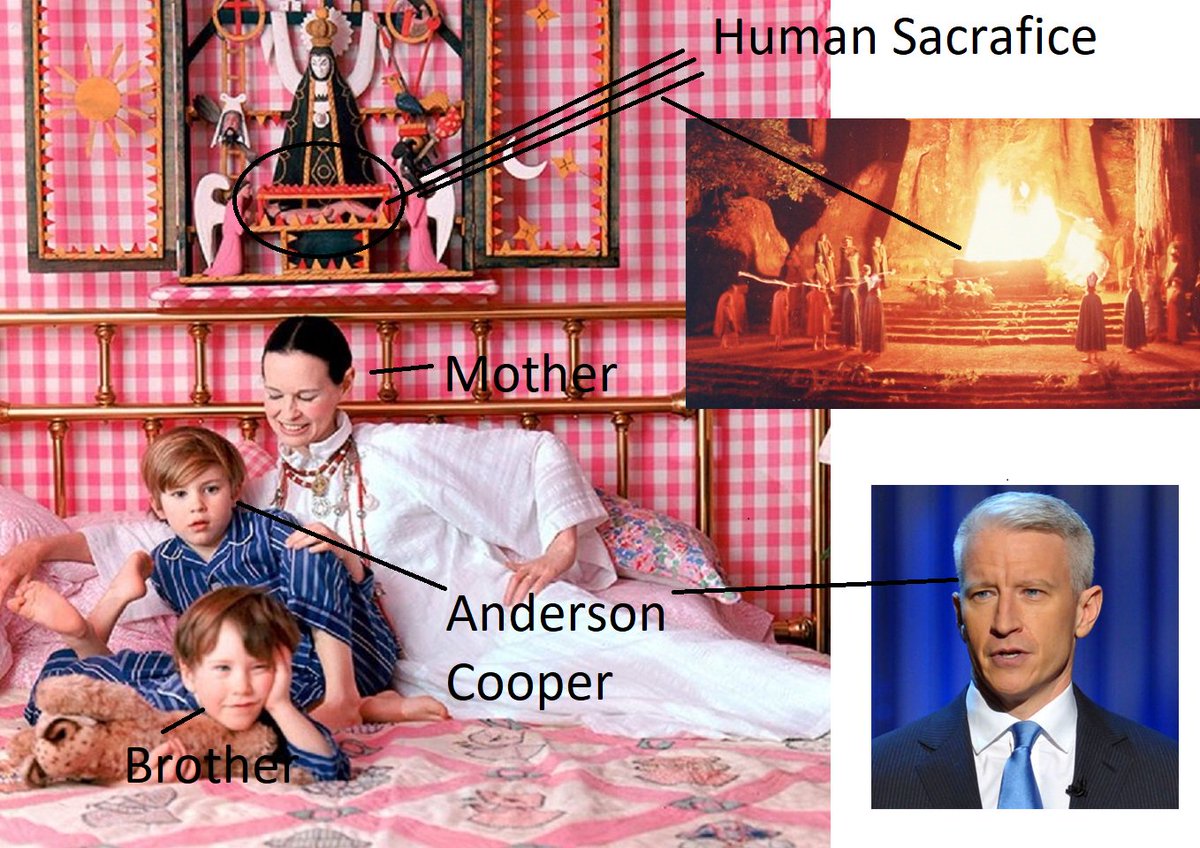
/cdn.vox-cdn.com/uploads/chorus_image/image/61206027/Neutra11.0.0.1492897937.0.jpg)
































/cdn.vox-cdn.com/uploads/chorus_image/image/54336611/thumb_7348_finished_print_1024.0.jpg)








:no_upscale()/cdn.vox-cdn.com/uploads/chorus_asset/file/7793541/15229396600_c23554d5f8_o.jpg)








